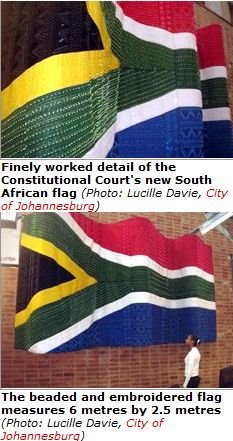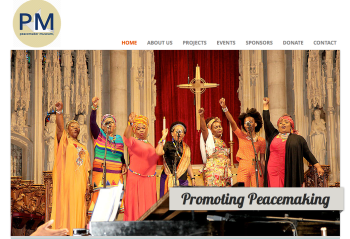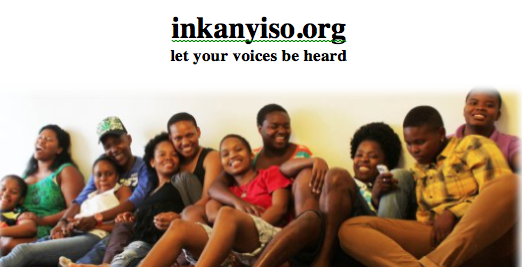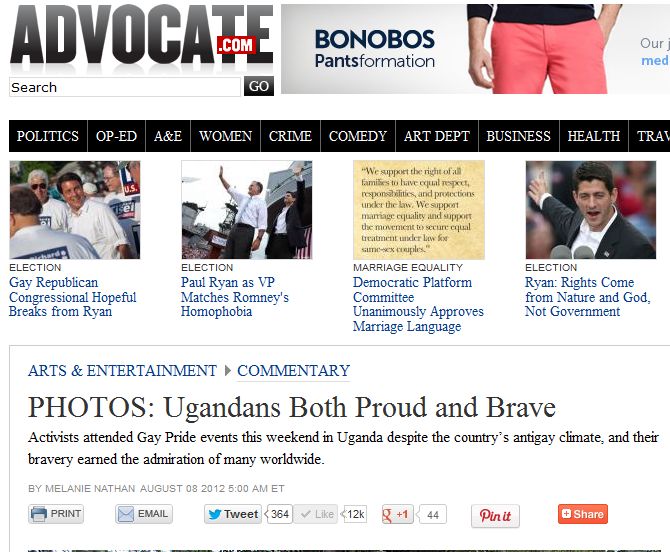By Melanie Nathan, Oct 20, 2012
 FOR those who have never seen this – a worthy read – On 1 December 2005 the South African Constitutional Court handed down its decision: the nine justices agreed unanimously that the common-law definition of marriage and the marriage formula in the Marriage Act, to the extent that they excluded same-sex partners from marriage, were unfairly discriminatory, unjustifiable, and therefore unconstitutional and invalid. In a widely-quoted passage from the majority ruling, Justice Albie Sachs wrote:
FOR those who have never seen this – a worthy read – On 1 December 2005 the South African Constitutional Court handed down its decision: the nine justices agreed unanimously that the common-law definition of marriage and the marriage formula in the Marriage Act, to the extent that they excluded same-sex partners from marriage, were unfairly discriminatory, unjustifiable, and therefore unconstitutional and invalid. In a widely-quoted passage from the majority ruling, Justice Albie Sachs wrote:
“The exclusion of same-sex couples from the benefits and responsibilities of marriage, accordingly, is not a small and tangential inconvenience resulting from a few surviving relics of societal prejudice destined to evaporate like the morning dew. It represents a harsh if oblique statement by the law that same-sex couples are outsiders, and that their need for affirmation and protection of their intimate relations as human beings is somehow less than that of heterosexual couples. It reinforces the wounding notion that they are to be treated as biological oddities, as failed or lapsed human beings who do not fit into normal society, and, as such, do not qualify for the full moral concern and respect that our Constitution seeks to secure for everyone. It signifies that their capacity for love, commitment and accepting responsibility is by definition less worthy of regard than that of heterosexual couples.”
—Paragraph 71 of the judgment –
Law
Three laws currently provide for the status of marriage in South Africa. These are the Marriage Act (Act 25 of 1961), which provides for civil or religious opposite-sex marriages; the Recognition of Customary Marriages Act (Act 120 of 1998), which provides for the civil registration of marriages solemnised according to the traditions of indigenous groups; and the Civil Union Act (Act 17 of 2006), which provides for opposite-sex and same-sex civil marriages, religious marriages and civil partnerships. A person may only be married under one of these laws at any given time.
Couples marrying in terms of the Civil Union Act may choose whether their union is registered as a marriage or a civil partnership. In either case, the legal consequences are identical to those of a marriage under the Marriage Act, except for such changes as are required by the context. Any reference to marriage in any law, including the common law, is deemed to include a marriage or civil partnership in terms of the Civil Union Act; similarly, any reference to husband, wife or spouse in any law is deemed to include a reference to a spouse or civil partner in terms of the Civil Union Act.
Full History at http://en.wikipedia.org/wiki/Same-sex_marriage_in_South_Africa




















 PoochParkWear customizes hoodies and t-shirts, the good, the naughty, the in between, whether proud or quirky let them be seen. We also offer biker jackets, croc or pleather collars, a variety of collar charms, and our special Zinja beaded collars made by a co-op of HIV-positive South African women, the Sisonke women who weave the beads onto the collars.
PoochParkWear customizes hoodies and t-shirts, the good, the naughty, the in between, whether proud or quirky let them be seen. We also offer biker jackets, croc or pleather collars, a variety of collar charms, and our special Zinja beaded collars made by a co-op of HIV-positive South African women, the Sisonke women who weave the beads onto the collars.

Trackbacks/Pingbacks
[…] “The exclusion of same-sex couples from the benefits and responsibilities of marriage, accordingly, is not a small and tangential inconvenience resulting from a few surviving relics of societal prejudice destined to evaporate like the morning dew. It represents a harsh if oblique statement by the law that same-sex couples are outsiders, and that their need for affirmation and protection of their intimate relations as human beings is somehow less than that of heterosexual couples. It reinforces the wounding notion that they are to be treated as biological oddities, as failed or lapsed human beings who do not fit into normal society, and, as such, do not qualify for the full moral concern and respect that our Constitution seeks to secure for everyone. It signifies that their capacity for love, commitment and accepting responsibility is by definition less worthy of regard than that of heterosexual couples.” —Paragraph 71 of the judgment – South African Same-sex marriage law:- Read more […]